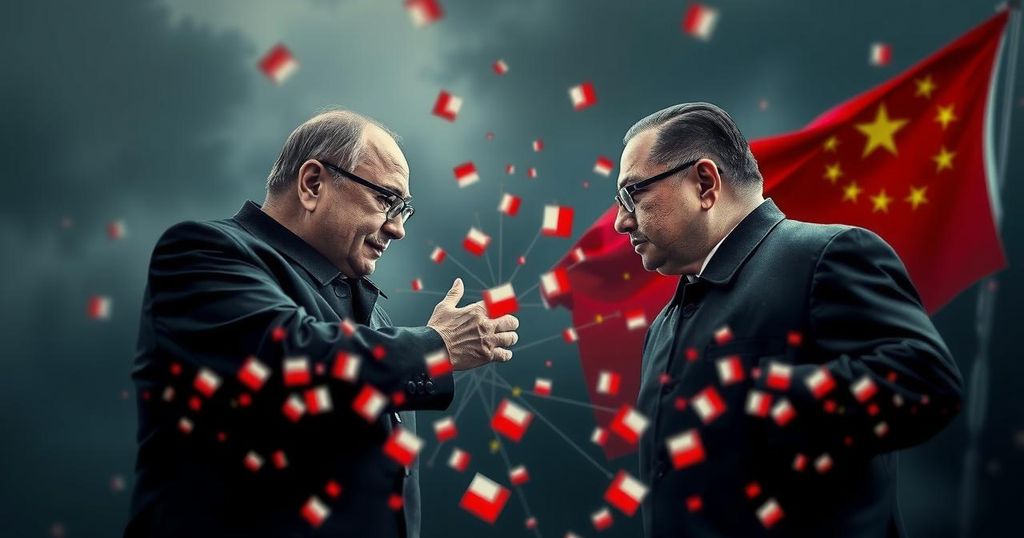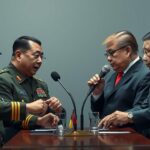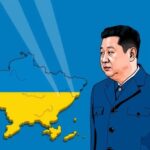China’s Growing Unease Over North Korea’s Alliance with Russia
China is increasingly alarmed by North Korea’s military collaboration with Russia, particularly with the deployment of North Korean troops in Ukraine. U.S. officials, including Deputy Secretary of State Kurt Campbell, have noted Beijing’s growing concerns regarding the implications of Pyongyang’s actions for its national interests. Analysts are divided on whether a significant rift exists between China and Russia, amid mutual support that complicates U.S. efforts to forge alliances in East Asia.
Recent statements by Kurt Campbell, the U.S. Deputy Secretary of State, have highlighted China’s growing apprehension regarding North Korea’s recently enhanced relations with Russia. Campbell noted that China’s concerns have been ignited by North Korea’s decision to deploy approximately 10,000 troops to support Russia in the Ukraine conflict. While North Korean troops are reportedly stationed within Russia, there remains significant uncertainty within the Japanese foreign ministry regarding China’s position on this military collaboration. Officials in Japan suggest that China has not openly endorsed North Korea’s actions, potentially fearing that military ties with Moscow could facilitate an American-led alliance in East Asia, perceived by Beijing as a direct challenge to its influence.
In a notable gesture, China has expressed its intention to remove a buoy it had placed within Japan’s exclusive economic zone, specifically near the contentious Senkaku Islands in the East China Sea. This move, though minor, symbolizes an attempt to ease tensions with Japan and cater to factions within the country that wish to avoid escalation into a U.S.-orchestrated conflict with China.
During a seminar at the Center for Strategic and International Studies, Campbell remarked, “The topic that is becoming increasingly uncomfortable for Chinese interlocutors is the DPRK [North Korea] engagement with Russia.” He expressed that discussions with China reveal a level of concern regarding the DPRK’s (Democratic People’s Republic of Korea) actions and the potential implications they have for Chinese interests.
Compounding the unease, analysts such as Dennis Wilder question whether there exists a significant rift between China and Russia amid their growing cooperation. Wilder highlighted the “radio silence” from Beijing regarding the military engagements of North Korea and suggested that China’s relationship with both North Korea and Russia could ultimately have adverse effects on its standing in the international community, particularly in light of Russian nuclear assistance to North Korea.
Adm. Samuel Paparo, commander of the U.S. Indo-Pacific Command, described the trilateral relationship among Russia, China, and North Korea as exhibiting a “certain transactional symbiosis,” suggesting mutual benefit as North Korea meets Russia’s military needs in exchange for advanced technology. Analysts like Andrew Shearer remain skeptical of the potential for creating divides between Moscow and Beijing, asserting that China has played a crucial role in supporting Russia amid its ongoing conflict in Ukraine.
The complexities surrounding China’s stance are echoed in Japan, where scholars argue that it is implausible for China to be unaware of Russia’s military intentions. Prof. Emi Mifune noted that China would likely seek a victory for Russia to bolster its own strategic position concerning Taiwan. Furthermore, Prof. Hideya Kurata has emphasized the necessity of contextualizing these dynamics within North Korea’s evolving military ambitions, including the development of various missile capabilities aimed at Japan, Guam, and potentially the U.S. mainland.
The dynamics among China, Russia, and North Korea have intensified as geopolitical interests shift, particularly with ongoing military engagements in Ukraine. The significant cooperation that has emerged between Pyongyang and Moscow is causing considerable unease in Beijing. This discomfort stems from the possibility that North Korean actions may provoke a stronger response from the United States and its allies, thereby altering the balance of power in East Asia. While China may traditionally align with North Korea, the increasing visibility of its military collaboration with Russia raises questions about Beijing’s influence and its future strategic calculations in the region.
In summary, the evolving trajectory of North Korea’s relationship with Russia is raising alarm bells in China, suggesting a precarious balance in regional power dynamics. China’s apparent discomfort, coupled with its ambiguous response regarding North Korean troop deployments, highlights the complexities of diplomatic positioning in the face of potential U.S.-led coalitions in East Asia. As these intricate relationships continue to unfold, the implications for regional stability and security will demand careful monitoring and strategic foresight from all involved parties.
Original Source: www.theguardian.com








Post Comment